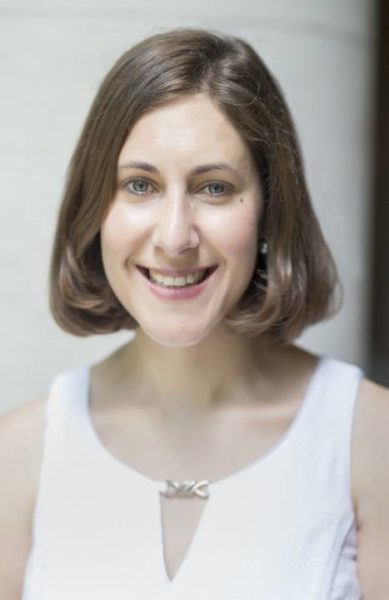Preschoolers are capable of learning more complicated math concepts than most parents realize, according to a new Vanderbilt study. What's more, these concepts can be easily introduced through simple games and tasks at home.

Lead author is Erica Zippert, a postdoctoral scholar in the Department of Psychology and Human Development at Vanderbilt University Peabody College of education and human development. She and her colleague Bethany Rittle-Johnson recently published a report, "The Home Math Environment: More Than Numeracy" in Early Childhood Research Quarterly.
Their study revealed that parents of preschoolers seem to reinforce counting and number recognition, and leave the more complex concepts to the child's future teachers.
Zippert explains that preschool age is not too soon to introduce these three fundamental math concepts:
- numeracy (counting objects as well as naming, comparing and combining numbers);
- patterning (creating patterns and replicating them with the same and different materials); and
- spatial skills (exploring dimensions; identifying features, like corners and sides; looking for orientations, and remembering locations of objects).
"We found that parents primarily reinforced only the easier number concepts, like counting and numerals, and were less likely to support pattern and spatial skills," Zippert says. "We also found that parents spent less time providing math support through playful activities like reading number books and playing number games, and more time engaged in direct instruction of number concepts."
Parents can improve the way they help their preschoolers build a foundation for math in lots of fun and easy ways using items they already have around the house, she says:
Play board games and card games.
Board games like "Chutes and Ladders"and card games like "War" provide opportunities to count, compare and combine numbers through addition. They also provide lots of symbolic and non-symbolic number cues, such as spades/clubs on cards, and board game spaces and spinners.
Block building and puzzle games.
Block and puzzle activities provide an opportunity to introduce more complex concepts like spatial dimensions (size, height), spatial features (corner, side), and locations and directions (on top of, upside down). Ask "Which Lego tower is higher?" and "Which side of your building is red?"
Create and notice patterns in everyday activities.
Point out how the days of the week repeat in a month and how months repeat each year. While doing laundry, line up different colored socks in a pattern (red-red-blue-red-red-blue). Ask the child, "What comes next?" and let them continue the pattern. Then ask the child to replicate the pattern using different color socks or different objects.
Zippert says that common myths remain about preschoolers and math learning:
MYTH: Preschool math is all about numbers, especially basic skills like counting.
TRUTH: Non-numeracy domains like spatial skills and patterning are also vital to the development of math skills, and can be introduced at a young age. Also, preschoolers are capable of comparing numerical magnitudes (e.g., 4 is "bigger than 3") and adding simple sums.
MYTH: Math should be taught formally (direct instruction), and primarily at school.

TRUTH: Math learning starts at home and it can and should be fun. Parents can support math learning through lots of informal activities and play, whether at home, doing laundry and cooking, or on the go, at a grocery store, a museum or the park. Teaching math in the moment during everyday interactions makes it more meaningful.
MYTH: Not everyone can understand math.
TRUTH: Math is for everyone. When parents approach math with positivity, it is easier for the child to learn. Try not to say "I'm not a math person," as that reinforces a negative stereotype about math.
Read the report, "The Home Math Environment: More Than Numeracy" in Early Childhood Research Quarterly. Co-author is Bethany Rittle-Johnson, professor and chair, Department of Psychology and Human Development at Peabody.
This research was supported by Heising-Simons Foundation grant #2016-093 and by the Institute of Educational Sciences grant #R305A160132.






